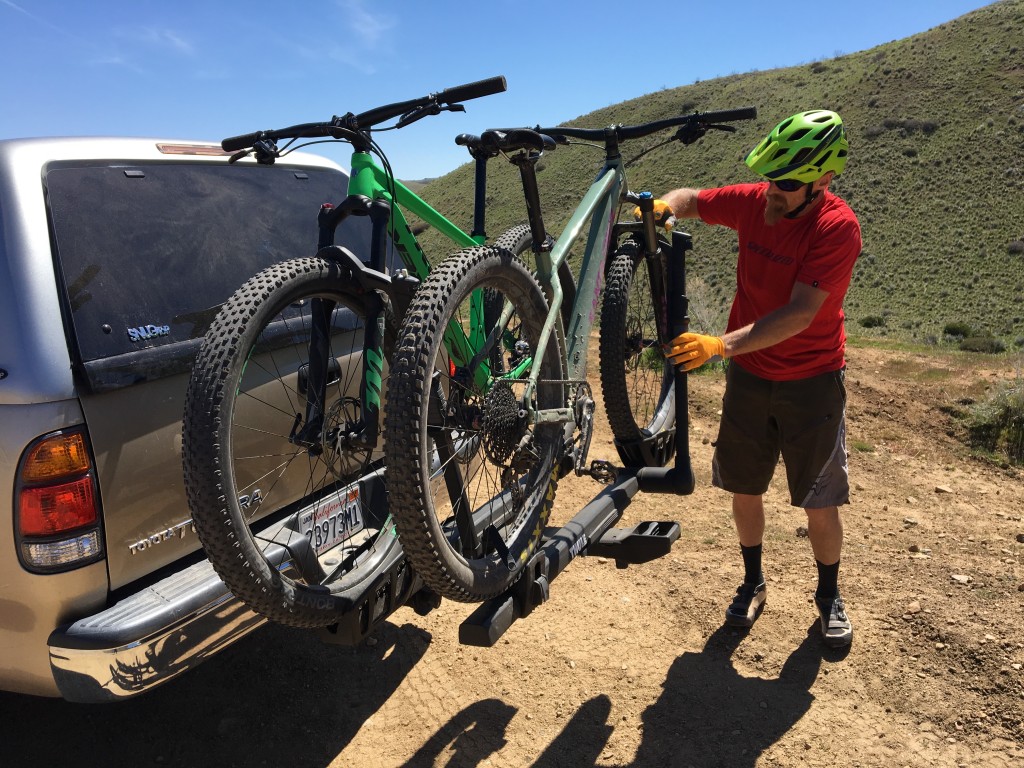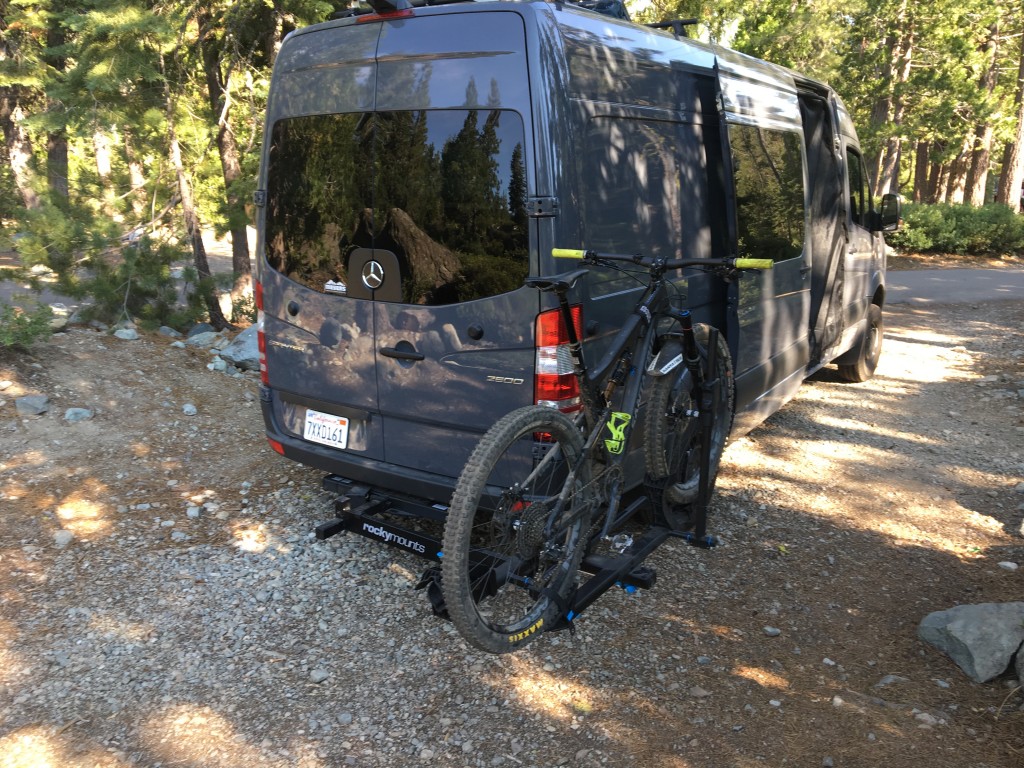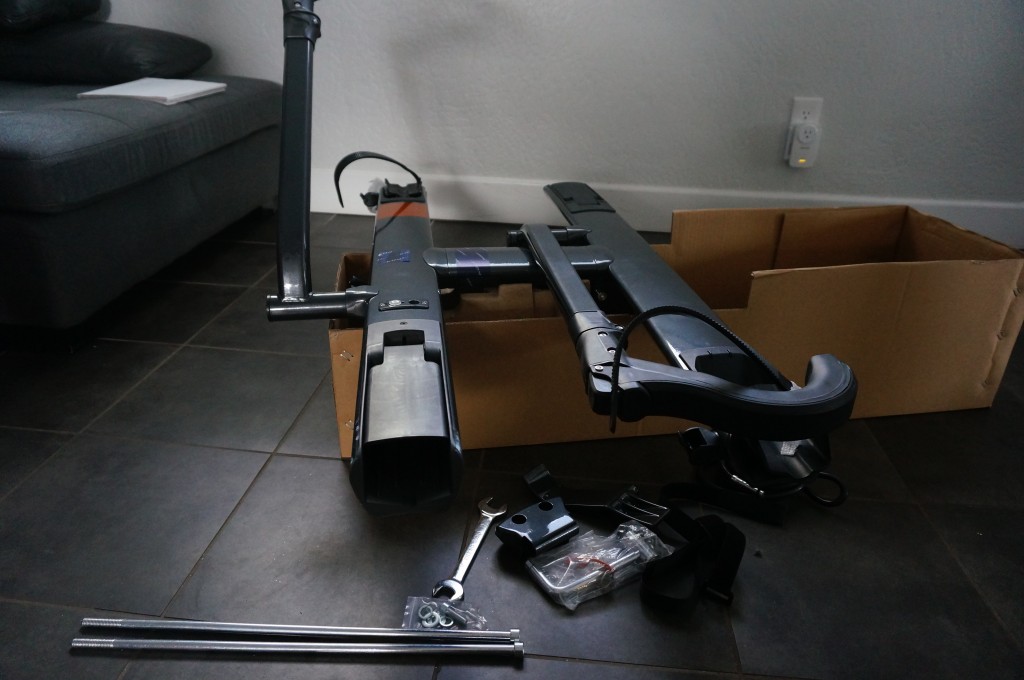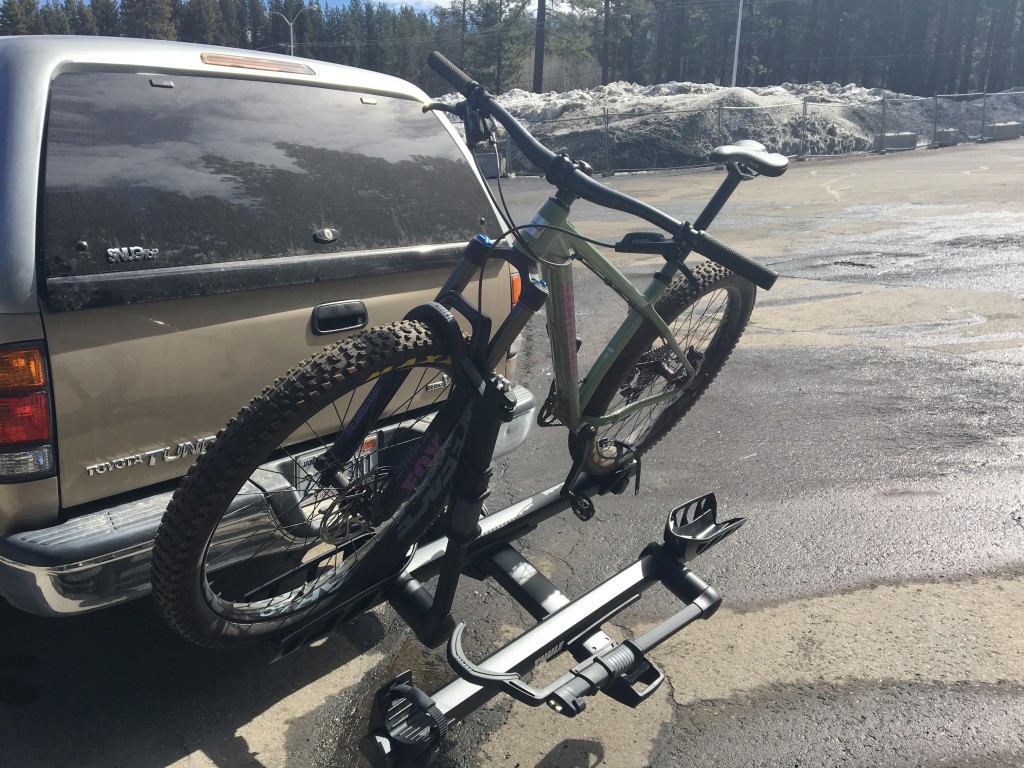Ease of Daily Use
Using a product on a daily basis, some of the details can be just as important as the main features. We use these racks not just for hauling our bikes around, but we also analyze how easy they are to live with on our vehicles. We used these racks on gigantic vans, pickup trucks, wagons, and crossovers; we took notes when cameras were blocked, lights obscured, or egress was impeded. If you need access to the back of your vehicle while bikes are loaded, consider a fold-down or swing-out rack. We also used a variety of bicycles ranging from kids' bikes to e-bikes, road bikes, fat bikes, and cruisers. All of this is intended to help pick up on each bike rack's small yet critical intricacies that may not be so obvious straight out of the box.
Ease of Removal and Storage
Ease of removal and storage is as straightforward as it sounds. Since we had multiple testers using multiple vehicles, we removed them frequently, stowing and swapping between vehicles. Because we removed them frequently, we quickly identified which racks were complicated, had laborious steps, or were difficult to handle. We were also quick to pick up on the user-friendly ones that were simple to remove.
The storage aspect was even easier to assess. As mentioned above, we tested sixteen bike racks for this review. The logistics of doing this meant we always had a couple in our garages or on our workshop floor. It didn't take long, seeing them side to side, for months on end, to tell which ones stowed efficiently and which occupied a ton of space. If a small storage footprint is important, consider a fold-up rack or check its dimensions before purchasing. If you'll be mounting the rack to your vehicle permanently, this won't likely be much of a consideration.
Versatility
We focused on several areas with this test: the ability to hold a range of bike types, weight restrictions, functionality on different vehicles, and bike-to-bike contact. Testing versatility required that we not only test each rack with everything from road bikes, electric bikes, and mountain bikes but also that we put a variety of different combinations of bikes in different positions on these hitch racks. We sought out conflict, and sometimes, we found it.
During our testing, we noticed some racks had shortcomings in terms of versatility and compatibility. We took notes and conducted extensive measurements on these hitch racks to evaluate tray spacing and clearance from the back of the vehicle. We also examined the lateral tray adjustment range to determine the amount of clearance we could create to avoid bike-to-bike contact. As a result, the top-performing products offered adjustability to work with a wider range of vehicles and handle a variety of bike styles.
Ease of Assembly
Our test team assembled each rack before use. In order to replicate the consumer's experience as closely as possible, each rack was put together by a single tester without any assistance, using only the tools provided by the manufacturer (unless tools were not supplied). We documented the process with photos and notes. Some racks left us feeling angry and frustrated, which is reflected in their scores. However, we also found some racks to be intuitive and easy to assemble, and their positive aspects are highlighted in our recommendations. We carefully evaluated the directions for accuracy and clarity. Our testers have extensive experience in building racks, so if we find something confusing, it's likely that you would, too.
Security
We should start by saying that none of our bikes were stolen off the racks during testing. This is likely more a testament to luck than a measure of security. None of our testers have experience stealing bikes, but we knew the tools of the trade and did our best to put ourselves in the mind of a thief to assess the strengths and weaknesses of each rack and its security features.
The truth is that a determined thief could overcome any of the lock systems that are included with the racks in our test. Very few locks or cables cannot be cut through with bolt cutters and modern power tools. We evaluated the security of locks and considered the capability, or lack thereof, to secure the bike frame, the wheels, and even the rack itself to your vehicle. We assessed the quality and length of cables and locks, which ultimately contributed to our final scores. It's important to note that even the best security systems are likely to only serve as a deterrent to a determined bike thief.
Durability
Certainly! Here's the revised text:
We extensively tested all of the racks in this review over the course of several months, subjecting them to frequent use (and occasional abuse) to assess their long-term durability. Our aim was to simulate a year's worth of use for the average person within our testing period. These racks underwent testing alongside ongoing OutdoorGearLab mountain bike, gravel bike, and e-bike assessments. Some racks were used in shuttle runs, enduring as many as ten shuttle runs in a day on rough roads. When it snowed, we left them on the vehicles, and when they became covered in mud, we continued using them. We purposefully pushed these racks to their limits, intentionally subjecting them to the kind of abuse we wouldn't normally inflict on a thousand-dollar rack, with the goal of assessing their ability to withstand tough conditions. Our testing approach was rigorous, and we ranked the products based on their ability to withstand these challenges. Rest assured, we are likely more aggressive in our testing than the average user would be with their own gear. We also kept many of these racks around for longer-term testing and occasionally drop into the review to let you know that a rack tested five years ago needed new straps or that our Editor's Choice is still awesome.





